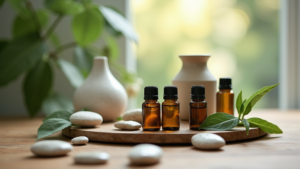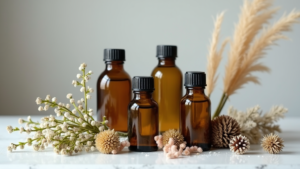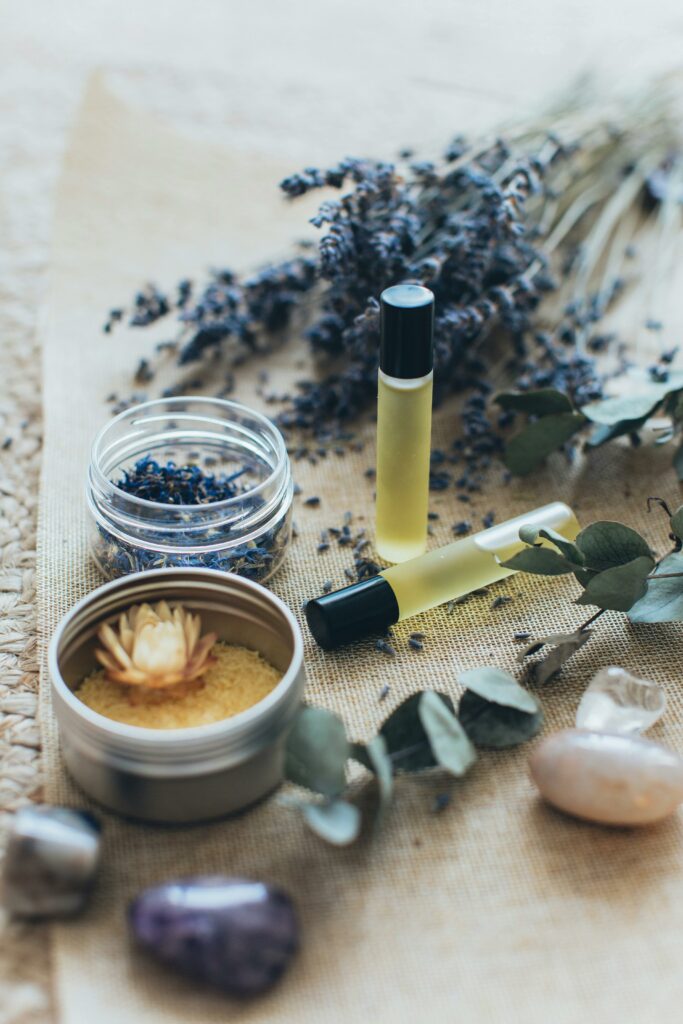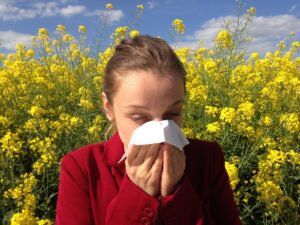
The Power of Essential Oils
Essential oils have been used for thousands of years due to their healing properties. These concentrated plant extracts offer numerous benefits and remain popular today for their natural therapeutic effects. When used correctly, they can enhance your physical, emotional, and mental well-being.
This article will explore essential oils and how to use them safely.
What Are Essential Oils?
Essential oils come from plant parts like leaves, stems, flowers, and roots. They are extracted through distillation or cold pressing, resulting in highly concentrated oils. These oils can be inhaled, applied to the skin, or used in diffusers.
There are hundreds of essential oils available, each with unique benefits. Some popular options include lavender, peppermint, tea tree, lemon, and eucalyptus.
How to Use Essential Oils

1. Aromatherapy Diffusers
Aromatherapy diffusers are a simple way to enjoy essential oils. These devices disperse oils into the air, allowing you to inhale their healing effects. Various types of diffusers, like ultrasonic, nebulizing, and electric heat diffusers, are available.
To use one, fill the diffuser with water, add a few drops of essential oil, and turn it on. Run it for 15-20 minutes or follow the manufacturer’s directions.
2. Topical Application
You can apply essential oils to your skin, but always dilute them with a carrier oil like coconut or jojoba oil. Since essential oils are potent, using them undiluted can cause irritation.
To use topically, mix a few drops of essential oil with a carrier oil. Test the mixture on a small patch of skin first to check for allergic reactions.
3. Inhalation
Inhaling essential oils is another easy method. Add a few drops to hot water and breathe in the steam. You can also put a few drops on a tissue and inhale the scent directly.
4. Baths
Adding essential oils to your bath is a great way to relax. Mix a few drops with a carrier oil or bath salts before adding them to the water. Soak in the tub for 15-20 minutes to feel the benefits.
Safety Tips for Using Essential Oils

While essential oils are generally safe, you should follow a few guidelines to avoid unwanted reactions.
1. Dilute Before Use
Always dilute essential oils with a carrier oil before applying them to your skin. This helps prevent irritation and sensitivity.
2. Patch Test First
Before using any new essential oil, perform a patch test. Apply a small amount of the diluted oil to your elbow and wait 24 hours to check for any reaction.
3. Follow Usage Guidelines
Some essential oils aren’t safe during pregnancy or with certain medical conditions. Always follow the usage instructions and consult with a healthcare provider if necessary.
4. Proper Storage
Store essential oils in dark glass bottles, away from sunlight and heat. This keeps the oils from degrading and ensures their potency.
5. Keep Away from Children and Pets
Many essential oils are harmful if ingested or applied directly to the skin. Keep them out of reach of children and pets for their safety.
6. Choose High-Quality Oils
Always buy high-quality, pure essential oils. Avoid oils with synthetic fragrances or additives to ensure the best results.
7. Avoid Ingesting
Do not ingest essential oils unless directed by a healthcare professional. Ingesting them can harm your digestive system and may be toxic in large doses.
Conclusion
Essential oils provide a natural way to support your health and well-being. You can use them in diffusers, apply them to your skin, inhale them, or add them to baths for their therapeutic benefits.
However, always practice caution and follow safety guidelines. If you have any medical conditions or are pregnant, consult with a healthcare provider before using essential oils. With the right approach, essential oils can be a powerful tool for your wellness routine.




